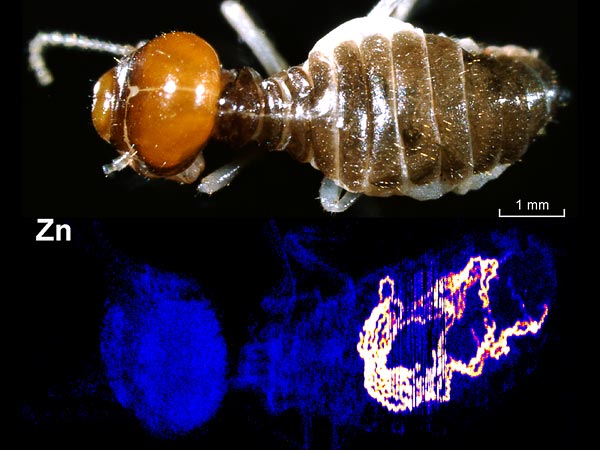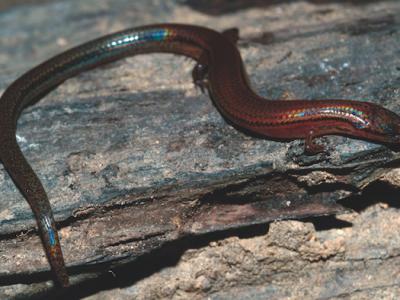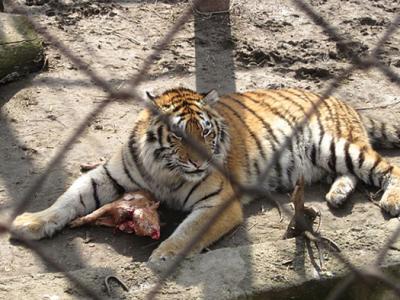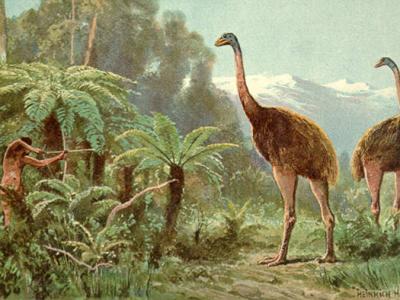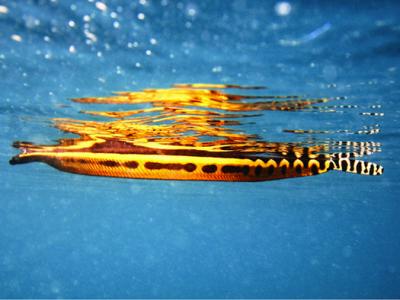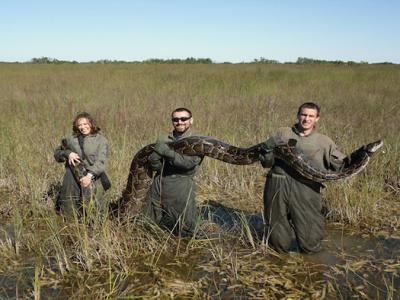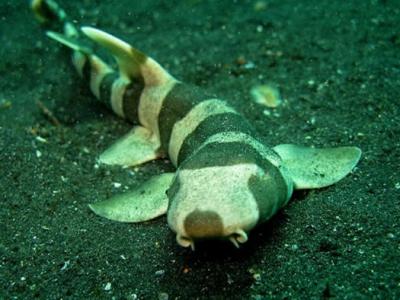Gold “Mining” Termites Found, May Lead Humans to Riches
Worker termite (above), with distribution of zinc throughout its body (below).
Want to know if you're literally sitting on a gold mine? Get some termites, a new study suggests.
New experiments in West Australia reveal that termites "mine" and stockpile the precious metal while they're collecting subterranean material for their nests.
For the study, entomologist Aaron Stewart, with Australia's Commonwealth Scientific and Industrial Research Organisation, and colleagues took samples from several termite nests and compared the nest material to nearby soil samples from varying depths.
By using a mass spectrometer—an instrument that measures molecules' chemical makeup—they discovered that the termite nests were richer in gold than termite nests farther away from the metal, Stewart said in an email.
"That social insect colonies can selectively accumulate metals from their environment has been known for some time," Robert Matthews, a professor emeritus of entomology at the University of Georgia, noted by email.
"Some have even suggested that ant and termite nests could be analyzed productively when searching for potential mining sites for precious metals" such as gold, he said.
Those are Stewart's thoughts exactly. Gold deposits are usually hidden a few meters below the surface, making them tough for people to locate. But insects could essentially act as indicators of this buried treasure, said Stewart, whose study appeared recently in the journal Geochemistry: Exploration, Environment, Analysis.
"Drilling is expensive. If termites can help narrow down the area that needs to be drilled, then exploration companies could save a lot of money."
Termites Worth Their Waste in Gold?
In a related study published in 2011 in PLoS ONE, Stewart and his colleagues set out to find if termites, like many animals, accumulated metals within their bodies—potentially another way to pinpoint valuable mineral deposits.
Just as mammals accumulate calcium to maintain bones, some insects stockpile zinc and magnesium to harden their exoskeleton, particularly their jaws. Metals such as zinc act to reinforce those body parts.
But insects are also really good at excreting metals they do not need or that are toxic to them, Stewart noted. For example, insects shed metal either during molting or as tiny stones, much like kidney stones in humans.
When Stewart started to investigate insect excretory systems, he made a "fascinating" discovery that certain organs in the termite's excretory system contain varying amounts of metals-hinting at unknown processes going on inside the termite. That's important, he said, because it means that termite waste is a "driving force" for how metals get redistributed in an ecosystem.
Christine Dell'Amore
National Geographic News
Published December 12, 2012
